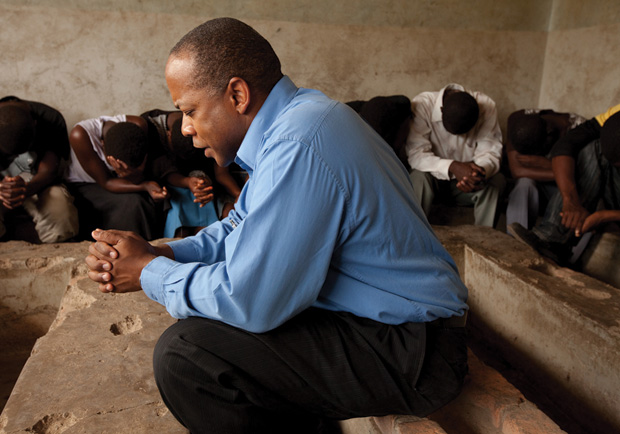The number of black churches in the Southern Baptist Convention (SBC) has surged more than 80 percent in the last decade to 3,400 U.S. congregations. However, the number of African American missionaries remains tiny: Only 27 of the SBC's 4,900 international missionaries are black.
That's about half a percent in a missions-minded denomination where 6.25 percent of churches are African American (totaling about 1 million members), and it isn't likely to change soon, experts say.
The main reason for the disparity is that black organizations just cannot keep up with the financial capacity of white organizations to send missionaries overseas, said David Goatley, executive secretarytreasurer at the African American mission agency Lott Carey.
"[African American] income is about 75 percent compared to our [Anglo American] siblings'—even when we have comparable education and experience," he said. "Our unemployment rate is also nearly twice their rate."
And sending missionaries requires raising support, Rice University sociologist Michael Emerson said. "Whites have 20 times the wealth of African Americans," he said. "So when you go to raise support, it's really hard because there's so much less money going around."
Another factor is most religious organizations still have racial divides, said Goatley. "The prospect of African Americans being part of Christian organizations with sending capacity is small."
But last year's election of Fred Luter, the SBC's first black president, could make a big difference. Luter plans to make his first mission trip to Africa later this year, and has called for more African Americans to consider missions.
"As SBC president, I will let [black] churches know that we desperately need more African Americans on the mission field," Luter told Baptist Press. "I want to challenge pastor[s] to start with young people."
Luter isn't the only one thinking about the shortage. "I hear more talk from more black pastors as they're trying to figure out in the new millennium if there's going to be a black church and what its role will be," Emerson said.
The church suffers by the underrepresentation of African Americans in overseas missions, he said. "People gifted by God to do exactly that are not getting to exercise that gift. And that gift is different from those gifted in ministering at home."
African Americans would be a valuable addition to the ranks of cross-cultural missionaries, said Goatley. Their cultural history—more than their skin color—makes them more welcome in African nations as well as marginalized communities in Europe, he said. "[And] the experiences of racism and white supremacy … would teach them to avoid better the paternalism that too many Anglo Americans show toward Africans and other majority-world people."
Historically, the local community is where black missions has centered, Goatley said. Often African Americans do community outreach on the side while holding down a regular day job, he said.
But many participate in shortterm mission projects. Lott Carey has deployed 100 short-term missionaries overseas over the past three years; more than 95 percent were African American.
Those missionaries aren't necessarily counted anywhere, Goatley said.
"This does not suggest that we are doing as well as we should," he said. "It does suggest, however, that one must be cautious about concluding that we are absent when the practices, communities, and assumptions related to missionary activity are born from contexts outside African American realities."










